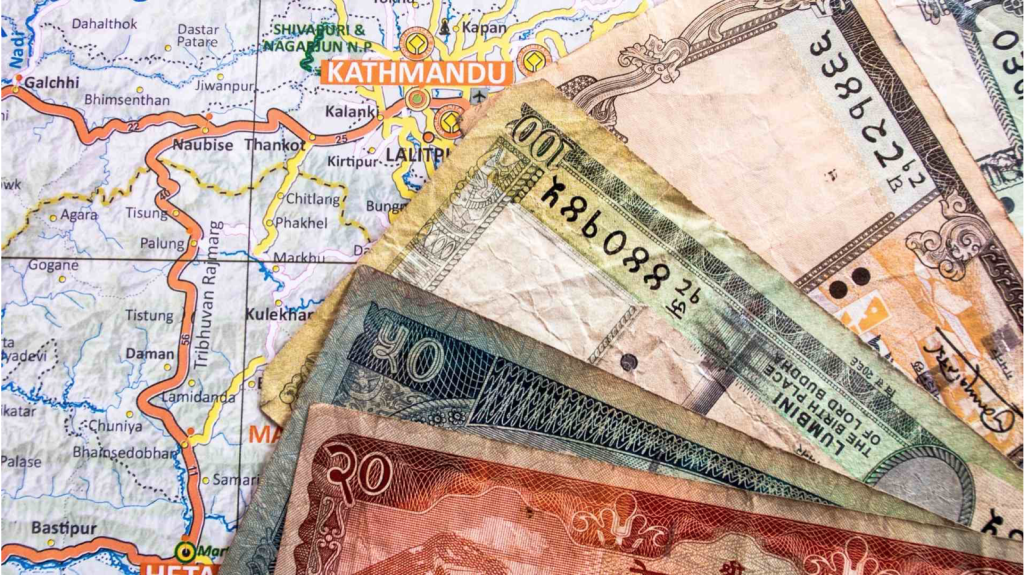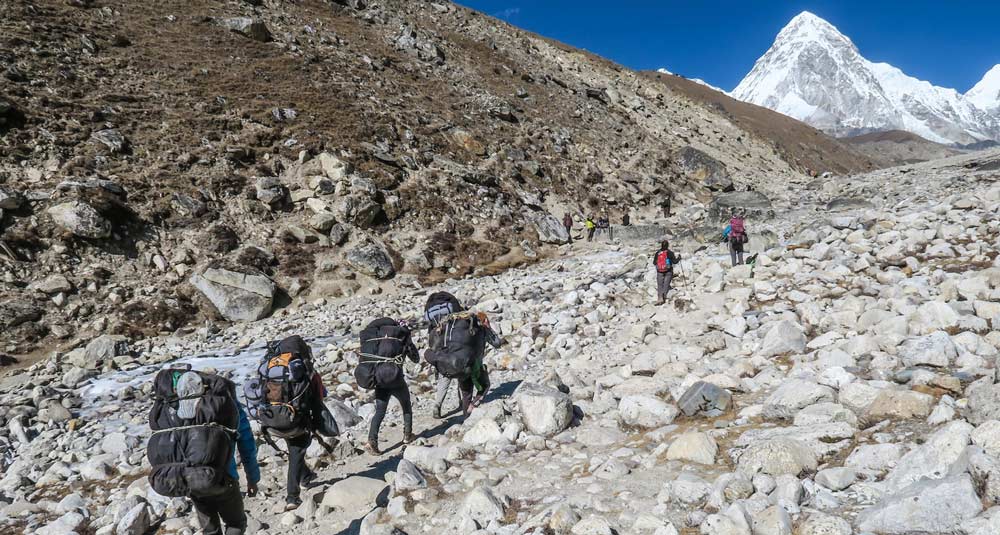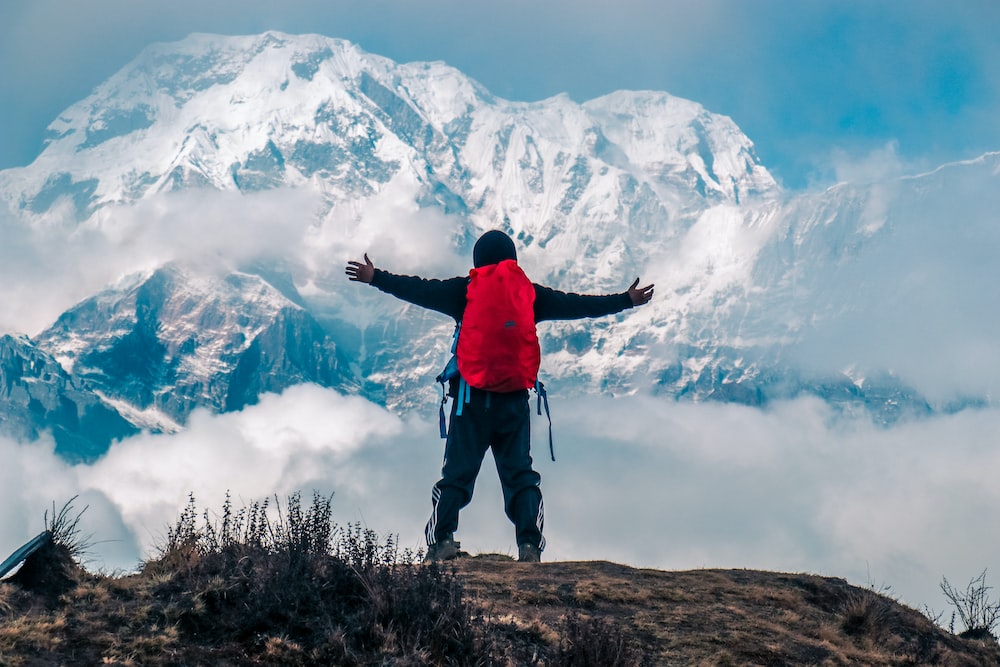One of the most commonly asked questions about the Everest Base Camp trek is, “how much does it cost?” As an experienced travel and trekking advisor, I can tell you that the cost can vary greatly depending on a variety of factors, including the size of your group. The more people in your group, the more you can potentially save on costs. In the following paragraphs, I’ll provide a detailed breakdown of the various costs involved in the Everest Base Camp trek, as well as tips for budgeting and saving money.
On average, the cost of the Everest Base Camp trek can range from $1,120 to $2500 per person, with the average cost being around $1350 for a 14-day trek. This cost includes necessary expenses such as permits, guide fees, porter fees* accommodations, food, and transportation and 2 domestic flights Kathmandu-Lukla-Kathmandu .
While the cost of the Everest Base Camp trek is certainly an important consideration, it’s not the only factor to keep in mind when planning your trek. In the following sections, I’ll provide a more detailed breakdown of the various costs involved, including accommodations, food, trekking permits, and equipment. Additionally, I’ll provide tips and strategies for budgeting and saving money, as well as advice on how to stay safe and healthy on the trek.
As one of the most iconic trekking destinations in the world, Everest Base Camp attracts thousands of trekkers every year. Nestled amidst the mighty Himalayas, the base camp offers breathtaking views of the surrounding peaks and a chance to experience the unique culture of the region. However, planning a trip to Everest Base Camp can be a daunting task, especially when it comes to budgeting. In this article, we’ll provide you with a comprehensive guide on the cost of trekking to Everest Base Camp, including an overview of the expenses and a comparison of costs between Nepal and India.
How much does it cost to trek Everest Base Camp?
Cost of Everest Base Camp Trek according to size of group in 2023-2024.
| Size of Group (in persons) | Cost in USD |
| 1 | 2465 |
| 2 | 1745 |
| 3 | 1508 |
| 4 | 1385 |
| 5 | 1315 |
| 6 | 1267 |
| 7 | 1229 |
| 8 | 1207 |
| 9 | 1186 |
| 10 | 1170 |
| 11 | 1154 |
| 12 | 1143 |
| 13 | 1138 |
| 14 | 1127 |
| 15 | 1122 |
Trekking to Everest Base Camp involves a variety of costs, including permits, accommodations, food, and transportation. Here’s a breakdown of the expenses in detail that is covered in the cost mentioned above.
Cost includes:
- All transfers in a private vehicle
- Flight Kathmandu – Lukla – Kathmandu
- English speaking experienced naturalist guide to accompany you during the whole tour
- On trek stay in simple Mountain Lodges which are clean and hygienic including all Meals – Breakfast, Lunch and Dinner (Fresh Nepali food on fixed menu), porter to carry personal belongings (baggage allowance 25 kgs maximum for 2 persons)
- All necessary permits and fees
- All expenses like wages, insurance, food and accommodation of guide and porter
Cost excludes:
- Tips
- Any services or personal expenses not mentioned in the itinerary
- Guest Insurance
- Expenses of personal nature like bar bills, laundry, extra expenses on food etc..
If you are planning to go solo on your trip to Mount Everest Base Camp, you will need to have a better understanding than the package costs above. Read below to get the information of other cost breakdown in detail.
Accommodation Cost on Everest Base Camp Trekking
When it comes to trekking to Everest Base Camp, accommodation is an important factor in determining your budget. The cost of accommodation on the Everest Base Camp trek can vary depending on the type of lodging you choose, the time of year, and the level of comfort you desire.
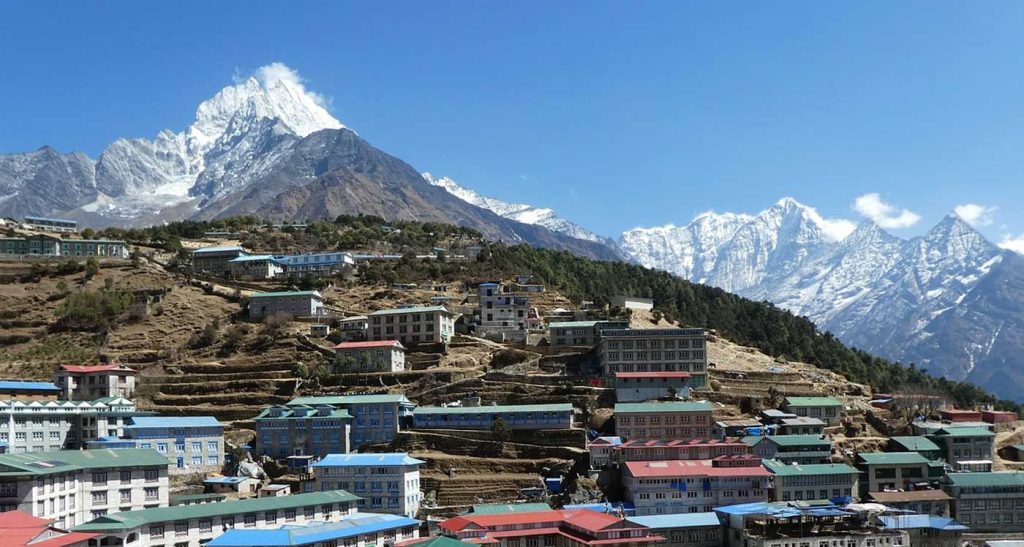
Teahouses as Basic Accommodation
Accommodations on the Everest Base Camp trek are typically in teahouses, which are basic lodges that offer simple amenities. The average cost for a bed per night per person in a basic teahouse is around $3, while a room with two beds will cost around $5. The price may increase as you ascend higher, and may reach up to $10 at Gorak Shep. Lobuche has a fixed accommodation rate of $7.
Room Features in Teahouses
Teahouses usually have basic rooms with two beds, a pillow, a blanket, and an attached bathroom (except at a few locations). Some teahouses may also offer shared rooms or dormitory-style accommodations. All tea houses typically have a large dining hall where you can eat and relax with other trekkers. There is often a fireplace in the center of the dining room designed for heating the entire room during dinner time.
Additional Charges
It’s important to budget for additional charges that may incur during your stay at the teahouses. Hot showers, for example, do not come for free unless you are paying for an ensuite room. A hot shower may cost anywhere from $2 to $6. Similarly, an electric blanket or electric heater will cost around $20 per night, although not all accommodations may have them. Battery charging also fetches an extra cost on an hourly basis, usually ranging from $2 to $6, while a power bank will be charged for $10.
Cost in Kathmandu
While the cost of accommodation on the actual trek is quite cheap, it’s important to note that the cost of accommodation in Kathmandu before and after your trek can contribute significantly to your budget. It’s recommended to budget around $20 to $50 per night for a decent hotel or guesthouse in Kathmandu.
Cost of Food on Everest Base Camp Trekking
When trekking to Everest Base Camp, food is an essential consideration in your budget. The cost of food on the Everest Base Camp trek can vary depending on the location, the type of food, and the season.
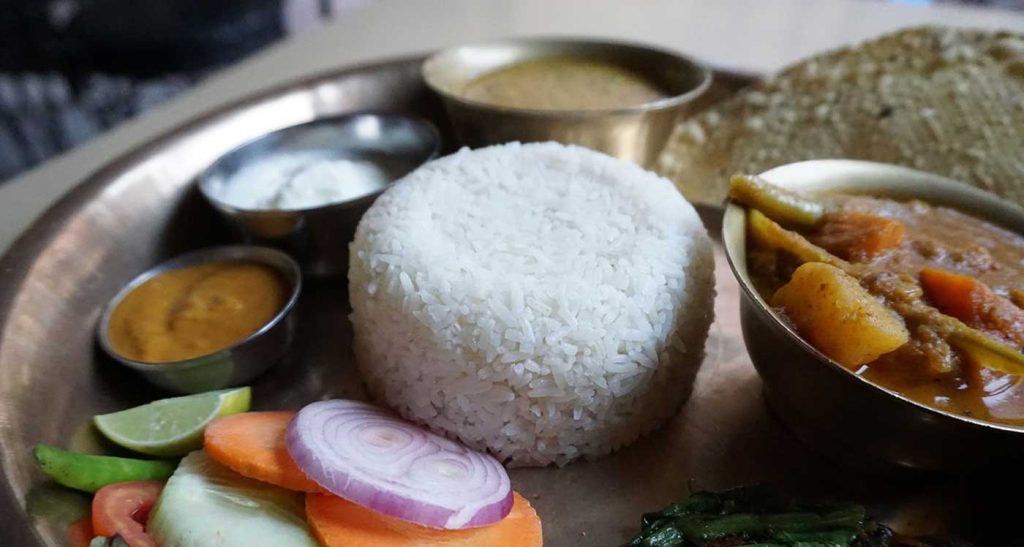
Food Cost in Teahouses
Accommodations on the Everest Base Camp trek are typically in teahouses, which offer basic meals. The cost of food in teahouses can vary depending on the location, with prices increasing as you ascend higher. In general, a meal in a teahouse can cost around $5 to $10.
Popular Foods
Some of the popular foods on the Everest Base Camp trek include dal bhat (rice and lentils), momos (dumplings), and thukpa (noodle soup). These foods are not only delicious but also provide the necessary carbohydrates, protein, and nutrients needed for the trek.
Snacks and Drinks
In addition to meals, it’s important to budget for snacks and drinks while trekking. Snacks such as energy bars, chocolate, and nuts can cost around $1 to $5, while a bottle of water can cost around $1 to $3. It’s recommended to bring water purification tablets or a water filter to save money on buying bottled water.
Tips for Saving Money On Food
To save money on food while trekking, it’s recommended to:
- Avoid ordering expensive dishes such as pizza or burgers.
- Eat vegetarian dishes, which are usually cheaper than meat dishes.
- Order food in advance, especially in peak season when teahouses can be crowded.
- Share meals with other trekkers to split the cost.
Safety Guidelines on Food
When trekking to Everest Base Camp, it’s important to follow certain safety guidelines when it comes to food:
- Avoid drinking untreated water or unpasteurized milk, as it can cause stomach problems.
- Wash your hands regularly with soap and water or hand sanitizer before and after meals.
- Avoid eating raw or undercooked meat, as it can cause food poisoning.
- Bring your own snacks and energy bars to ensure that you have enough food during the trek.
In conclusion, the cost of food on the Everest Base Camp trek can vary depending on the location and the type of food. By budgeting carefully and following certain safety guidelines, you can ensure that you have enough food during the trek without breaking the bank.
Cost of Visa in Nepal
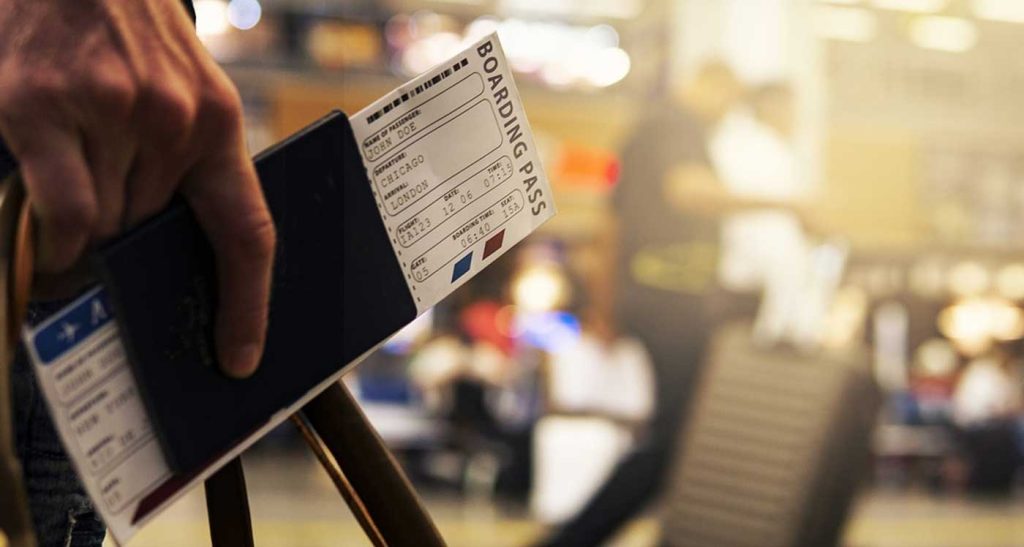
If you’re planning to trek to Everest Base Camp in Nepal, you’ll need to obtain a visa to enter the country. The cost of a visa in Nepal can vary depending on the type of visa and the length of stay.
Tourist Visa
For most visitors to Nepal, a tourist visa is required. The cost of a tourist visa in Nepal is:
- $30 for 15 days
- $50 for 30 days
- $125 for 90 days
Visa Extension
If you plan to stay in Nepal for longer than your initial visa allows, you can apply for a visa extension. The cost of a visa extension in Nepal is:
- $2 per day for a visa extension of up to 15 days
- $5 per day for a visa extension of up to 30 days
- $10 per day for a visa extension of up to 90 days
Visa on Arrival
You can obtain a visa on arrival at the Tribhuvan International Airport in Kathmandu or at the land border crossings. The process is straightforward and takes around 15 to 30 minutes. To obtain a visa on arrival, you’ll need to:
- Fill out a visa application form
- Pay the visa fee in cash (USD or local currency)
- Provide a passport-sized photo
Tips on Visa
When applying for a visa in Nepal, it’s important to follow certain safety guidelines:
- Keep your passport and visa in a secure location and carry copies of your documents with you at all times.
- Be aware of your surroundings when carrying cash and valuables.
- Use only authorized money changers and ATMs to avoid scams and fraud.
In conclusion, the cost of a visa in Nepal can vary depending on the type of visa and the length of stay. By following certain safety guidelines and tips for saving money, you can ensure that your visa application process goes smoothly and that you’re prepared for your Everest Base Camp trekking adventure.
Cost of Trekking Permits
Trekking to Everest Base Camp requires obtaining several permits, which can vary in cost depending on the season and type of permit required.

A. TIMS Card
The Trekkers’ Information Management System (TIMS) card is mandatory for all trekkers in Nepal. The cost of the TIMS card is:
- $10 for independent trekkers
- $20 for trekkers travelling with a registered trekking agency
B. Sagarmatha National Park Permit
The Sagarmatha National Park Permit is required for all trekkers entering the Everest region. The cost of the permit is:
- $35 per person for foreigners
- NPR 1,500 (approx. $15) for SAARC nationals
- Free for Nepali citizens
C. Khumbu Pasang Lhamu Rural Municipality Entrance Fee
The Khumbu Pasang Lhamu Rural Municipality Entrance Fee is a new fee that has been introduced for trekkers visiting the Everest region. The cost of the fee is:
- NPR 2,000 (approx. $20) per person
D. Tips for Saving Money
To save money on trekking permits for Everest Base Camp, it’s recommended to:
- Travel in the off-season (June to August and December to February) when permit fees are lower.
- Obtain permits through a registered trekking agency, as they may be able to negotiate better rates.
- Carry cash in the local currency to pay for permits, as credit cards are not accepted.
Safety Tips on Permits
When obtaining trekking permits for Everest Base Camp, it’s important to follow certain safety guidelines:
- Keep your permits in a safe and secure location and carry copies with you at all times.
- Be aware of your surroundings when carrying cash and valuables.
- Follow local laws and regulations when trekking in the area to ensure your safety and the safety of others.
In conclusion, obtaining trekking permits for Everest Base Camp is a necessary expense when planning your trekking adventure. By following certain safety guidelines and tips for saving money, you can ensure that you have the necessary permits without breaking the bank.
Cost of Guide & Porter to base camp
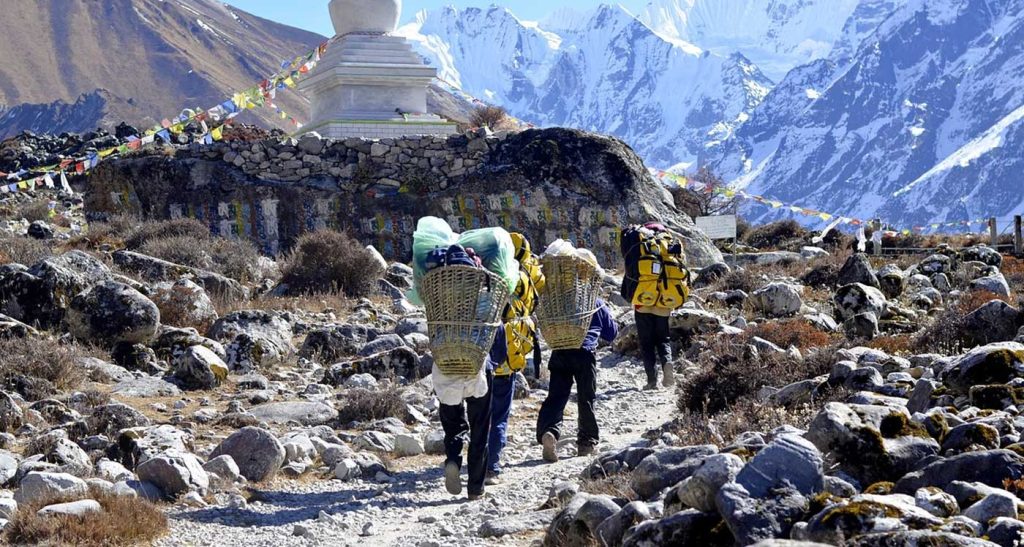
When planning your trek to Everest Base Camp, you may consider hiring a guide and/or porter to accompany you. Here’s a breakdown of the costs involved:
Price Hire a Guide to EBC
A guide can provide valuable assistance on the trek, including navigating the trails, communicating with locals, and providing cultural and historical information. The cost of hiring a guide for the Everest Base Camp trek can vary depending on the level of experience and the length of the trek. On average, the cost of hiring a guide for the trek can range from $25 to $35 per day.
Cost for Hiring Porter
A porter can carry your luggage and other gear, allowing you to focus on the trek and enjoy the scenery. The cost of hiring a porter for the Everest Base Camp trek can vary depending on the weight of your luggage and the length of the trek. On average, the cost of hiring a porter for the trek can range from $15 to $20 per day.
Tips for Hiring a Guide and Porter
When hiring a guide and porter for the Everest Base Camp trek, it’s important to keep the following tips in mind:
- Choose a reputable guide and porter agency to ensure quality service and fair compensation.
- Negotiate the price before hiring a guide or porter and be clear on what services are included.
- Be respectful of your guide and porter and treat them fairly.
Safety Guidelines on Hiring Guides and Porters
When hiring a guide and porter for the Everest Base Camp trek, it’s important to follow certain safety guidelines:
- Choose a guide and porter with experience in the region and with proper certifications.
- Carry travel insurance to cover any accidents or emergencies that may occur.
- Be aware of the weight limit for porters and avoid overloading them to prevent injuries.
In conclusion, hiring a guide and porter for the Everest Base Camp trek can add to your expenses, but it can also enhance your trekking experience. By following certain safety guidelines and tips for hiring a guide and porter, you can ensure that you have a safe and enjoyable trek to Everest Base Camp.
Cost of Travel Insurance for Everest Base Camp Trek
When planning your trek to Everest Base Camp, it’s important to obtain travel insurance to cover any accidents, injuries, or emergencies that may occur during your trip. The cost of travel insurance can vary depending on the coverage and length of the trek.
Travel Insurance Coverage Details
When choosing travel insurance for the Everest Base Camp trek, it’s important to ensure that your policy includes:
- Emergency medical coverage for accidents and illnesses
- Emergency evacuation coverage in case of altitude sickness or other emergencies
- Trip cancellation or interruption coverage in case of unexpected events such as natural disasters or personal emergencies
- Adventure sport coverage for trekking and other activities on the trek
Cost of Travel Insurance for Trekking in EBC.
The cost of travel insurance for the Everest Base Camp trek can vary depending on the level of coverage and the length of the trek. On average, the cost of travel insurance for the trek can range from $100 to $300 for a 15-day trip. However, the cost may be higher if you choose a policy with more extensive coverage.
Tips for Choosing Travel Insurance
When choosing travel insurance for the Everest Base Camp trek, it’s important to keep the following tips in mind:
- Compare policies from different providers to find the best coverage and rates.
- Check the policy exclusions to ensure that your activities on the trek are covered.
- Consider purchasing travel insurance with a reputable provider that has experience in adventure travel.
Safety Guidelines & Tips for Travel Insurance
When obtaining travel insurance for the Everest Base Camp trek, it’s important to follow certain safety guidelines:
- Choose a policy that provides coverage for high-altitude trekking and emergency evacuation.
- Carry a copy of your travel insurance policy and emergency contact information with you at all times.
- Be aware of the risks involved in trekking to high altitudes and take necessary precautions to prevent altitude sickness and other illnesses.
In conclusion, obtaining travel insurance for the Everest Base Camp trek is an important aspect of preparing for your adventure. By following certain safety guidelines and tips for choosing travel insurance, you can ensure that you have the necessary coverage for a safe and enjoyable trek to Everest Base Camp.
Cost of Trekking Equipment for Everest Base Camp Trek
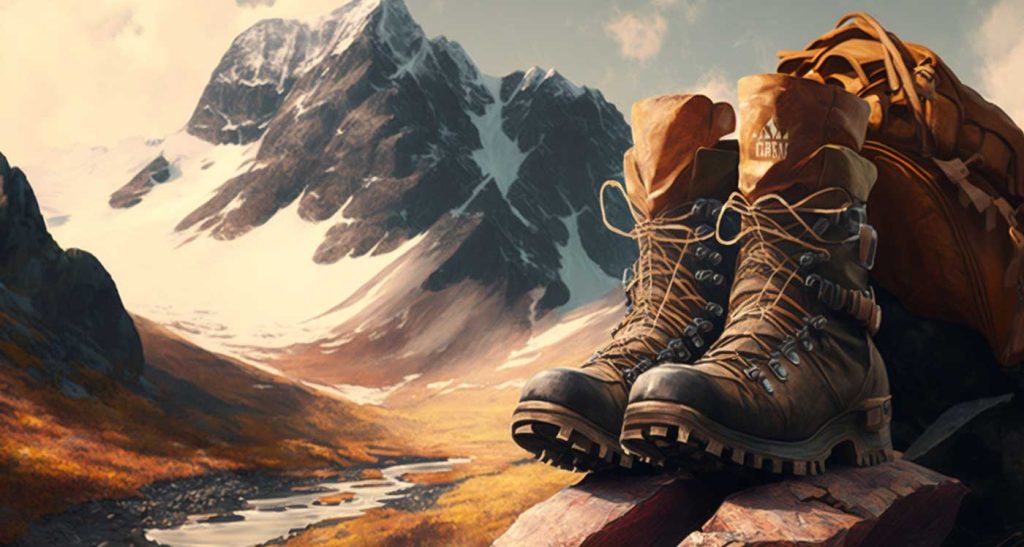
Trekking to Everest Base Camp requires a certain level of physical fitness and specialized equipment. Here’s a breakdown of the costs involved:
Cost of Clothing for EBC Trek
When trekking to Everest Base Camp, it’s important to dress in layers to adjust to changing temperatures and weather conditions. Here’s an estimate of the cost of clothing for the trek:
- Base layer (thermal underwear): $20-$40
- Mid-layer (fleece or down jacket): $50-$100
- Outer layer (waterproof jacket and pants): $100-$200
- Hiking boots: $100-$200
- Hiking socks: $10-$20
Trekking Gear with General Costs
In addition to clothing, there are certain trekking gear items that are essential for the Everest Base Camp trek. Here’s an estimate of the cost of trekking gear for the trek:
- Backpack: $50-$150
- Sleeping bag: $100-$300
- Trekking poles: $50-$100
- Headlamp: $20-$50
- Water bottle and water purification tablets: $20-$30
- Sunglasses: $30-$100
Tips for Saving Money on Equipment and Gear for Treks
To save money on trekking equipment for the Everest Base Camp trek, it’s recommended to:
- Rent equipment in Kathmandu or Namche Bazaar instead of buying new gear.
- Share equipment with fellow trekkers to reduce the overall cost.
- Buy used gear in Kathmandu or online from reputable sellers.
Safety Guidelines & Tips for EBC Equipment.
When preparing your trekking equipment for the Everest Base Camp trek, it’s important to follow certain safety guidelines:
- Choose high-quality gear that is appropriate for the weather and terrain conditions.
- Test out your equipment before the trek to ensure that it fits well and is comfortable to wear.
- Be prepared for emergencies by carrying a first aid kit and a personal locator beacon (PLB) or satellite phone.
In conclusion, the cost of trekking equipment for the Everest Base Camp trek can add up, but it’s essential for a safe and comfortable trekking experience. By following certain safety guidelines and tips for saving money, you can ensure that you have the necessary equipment without breaking the bank.
Cost of Transportation for EBC
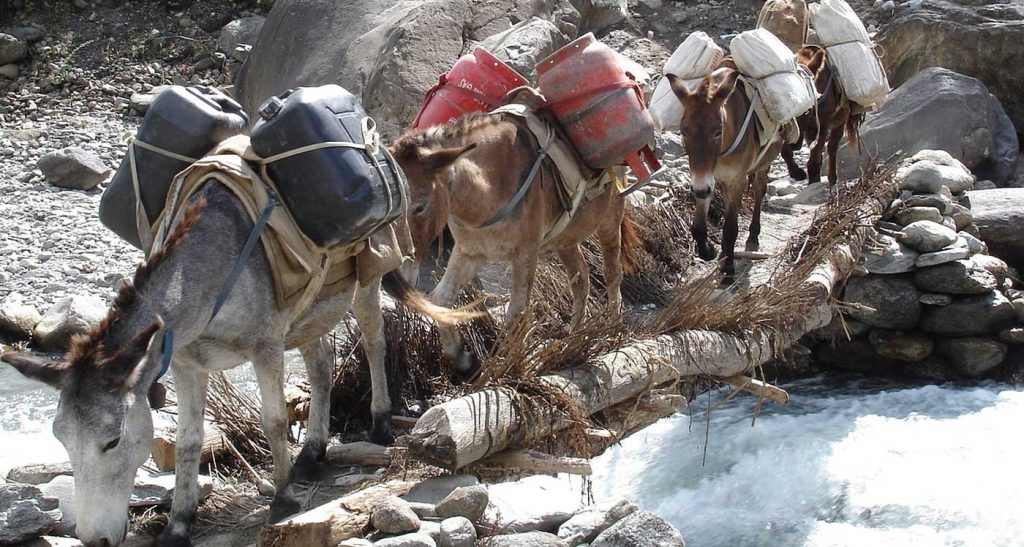
Transportation is a significant expense when trekking, as the trek starts and ends in Kathmandu and involves several modes of transportation throughout Kathmandu to Everest Base Camp. Here’s a breakdown of the costs involved:
Costs of Flights to Nepal
If you’re traveling to Nepal from another country, the cost of flights can be a significant expense. The cost of a round-trip flight from major international cities to Kathmandu can range from $500 to $1,500 or more, depending on the time of year and airline.
Ground Transportation Cost from Kathmandu to Everest Base Camp
Once you arrive in Kathmandu, you’ll need to take a domestic flight to Lukla or drive to Jiri to begin your trek. Here’s an estimate of the cost of ground transportation:
- Flight to Lukla: $100-$500, depending on the season and availability.
- Private jeep to Jiri: $200-$400, depending on the number of passengers.
- Public bus to Jiri: $10-$20 per person.
Trekking Permits & Costs in Nepal
Trekking permits are required to enter the Sagarmatha National Park and the Everest region. Here’s an estimate of the cost of trekking permits:
- Sagarmatha National Park Permit: $30 per person.
- Khumbu Pasang Lhamu Rural Municipality Entrance Permit: $20 per person.
Tips for Saving Money on Transportation to EBC
To save money on transportation, plan a short Everest Base Camp trek, it’s recommended to:
- Complete the trek in a shorter time – possible in 10 days.
- Book flights well in advance and during the low season to get the best deals.
- Use public transportation instead of private transportation whenever possible.
- Share transportation with fellow trekkers to split costs.
Transportation Safety Tips & Guidelines
For the EBC trek, it’s important to follow certain safety guidelines:
- Choose reputable airlines and transportation providers with a good safety record in addition to the price..
- Be prepared for flight cancellations or delays due to weather conditions in the region.
- Pack your important documents and valuables in your carry-on luggage in case of lost or delayed baggage.
In conclusion, the price of transportation for the EBC trek can add up, but it’s an essential expense for a safe and comfortable trekking experience. By following certain safety guidelines and tips for saving money in Everest, you can ensure that you have a hassle-free transportation experience without breaking the bank.
It’s important to note that the cost of trekking to Everest Base Camp can vary significantly depending on the trekking agency and the package you choose. Trekking with a guide or a porter can add to the cost, but it can also make your trek more comfortable and safe.
Comparison of costs between Nepal and India:
EBC trek is typically done from Nepal, but it’s also possible to trek from India. However, the cost of trekking from India can be significantly higher due to the additional permits and transportation costs involved. In general, EBC trek from Nepal is more cost-effective than trekking from India.
Everest Base Camp Trek Itinerary and Packages
There are many different itineraries and packages available for Everest Base Camp trek, ranging from 12 days to 21 days. The most popular itinerary is the 12-day trek, which covers a distance of 130 kilometers from Lukla to Everest Base Camp and back.
Trekking agencies offer a variety of packages, which can include different levels of support and amenities. Basic packages typically include permits, accommodations, and a guide, while more upscale packages may include transportation, equipment, and additional services.
It’s important to choose an itinerary and package that fits your budget, fitness level, and preferences. Trekking agencies can provide customized packages based on your needs and preferences.
How to get permits for Everest Base Camp trek
To trek to Everest Base Camp, you need to obtain two permits: a Sagarmatha National Park permit and a TIMS (Trekkers’ Information Management System) permit. These permits can be obtained from the Nepal Tourism Board in Kathmandu or from the Sagarmatha National Park entrance gate in Monjo.
To obtain the permits, you need to provide a copy of your passport, a passport-sized
photo, and the necessary fees. The fees for the Sagarmatha National Park permit and the TIMS permit are $30 and $20 per person, respectively.
It’s important to obtain the permits before starting the trek, as they are checked at various checkpoints along the way. Trekking agencies can also assist in obtaining the permits and ensuring that all necessary paperwork is in order.
Tips Summary: to reduce risk, increase safety and reduce cost where applicable:
- Choose best trekking company in Nepal which is suitable for your needs and that prioritizes safety and quality standards
- Hire a guide or porter-guide who has local knowledge and experience in the base camp.
- Prepare physically and mentally for the trek by training and acclimatizing properly
- Stay hydrated and well-nourished throughout the trek
- Dress appropriately for the weather and conditions
- Follow proper hygiene practices to prevent illness
- Purchase travel insurance that covers medical emergencies and evacuation
- Avoid unnecessary expenses and focus on essential items and experiences
- Choose budget accommodations and food options when possible
- Consider traveling during the off-season to avoid crowds and save money.
Remember. Everest Base Camp trek costs can look like a significant amount, but mark my words, be careful where you choose to cut price. Do not cut price on things that are related to safety and well being. Proceed to thin about cutting costs if you do not need luxury features and choose the tours and packages wisely.
Frequently Asked Questions (FAQs)
Is Everest Base Camp trek suitable for beginners?
Trekking to Everest Base Camp is a challenging trek that requires a certain level of fitness and preparation. However, with proper training and preparation, even beginners can tackle this trek. The trek is graded as a moderate to difficult trek, and it involves walking for 6 to 8 hours a day in high altitude and challenging terrain.
To prepare for the trek, beginners should focus on building endurance, strength, and cardiovascular fitness. It’s also important to acclimatize properly to the altitude and to take necessary precautions to prevent altitude sickness. Mental preparation is also crucial, as the trek can be physically and mentally demanding.
It’s recommended that beginners trek with a guide or a porter to ensure safety and comfort. Trekking with a guide can also provide valuable insights into the local culture and traditions.
How much do you need to spend on your Everest base camp trek?
The cost of the Everest base camp trek can vary depending on a number of factors, such as the tour company you choose, the length of the trek, and the season you go. On average, the cost can range from $1,120 to $2,500. To reduce costs, you can choose a budget tour company, travel during the off-season, or trek independently. However, be aware that traveling on a shoestring budget can increase the risk of encountering unexpected expenses or unsafe conditions.
Is it cheaper to trek to Everest base camp independently or with a guide?
Trekking independently can be cheaper than going with a guide, but it also requires more planning and preparation. Going with a guide ensures that you have someone to help you navigate the trek and provide assistance in case of an emergency. Hiring a guide can also be an opportunity to support the local economy and learn more about the culture and history of the region. If you choose to trek independently, make sure you have a detailed map, proper gear, and sufficient knowledge of the route.
How much should I expect to spend on food and accommodations during my Everest base camp trek?
The cost of food and accommodations during the trek can vary depending on the season and the location. On average, expect to spend around $20 to $30 per day for food and accommodations. To reduce costs, you can bring your own food and water, choose budget accommodations, and avoid unnecessary expenses such as souvenirs or luxury items.
Is it possible to do the Everest base camp trek on a budget?
Yes, it is possible to do the trek on a budget by choosing budget accommodations, bringing your own food and water, and avoiding unnecessary expenses. However, be aware that cutting corners on safety and health can increase the risk of altitude sickness or other health issues.
What are some ways to save money on the Everest base camp trek?
Some ways to save money include choosing a budget tour company, trekking independently, bringing your own food and water, and avoiding unnecessary expenses. However, make sure to balance cost-saving measures with safety and health considerations.
Comparing the costs of different Everest base camp trek tour companies
Comparing the costs of different tour companies can help you find the best deal. Look for companies that offer competitive prices while still providing high-quality services. However, be wary of companies that offer prices that are significantly lower than others, as this can be a sign of poor quality or safety standards.
How to avoid getting scammed on the Everest base camp trek
To avoid getting scammed, do your research and choose a reputable tour company. Look for companies that are registered with the local government and have a good track record of safety and quality. Be wary of companies that offer prices that are significantly lower than others, as this can be a sign of poor quality or safety standards. Additionally, make sure to read reviews from other travelers and ask for recommendations from trusted sources.
Is the cost of the Everest base camp trek worth it?
The cost of the trek is subjective and depends on your individual preferences and priorities. For many people, the experience of trekking to Everest base camp is priceless and worth the cost. However, make sure to balance cost considerations with safety and health considerations.
What are some hidden costs of the Everest base camp trek?
Hidden costs can include permits, gear rental, and unexpected expenses such as medical care or emergency evacuation. To reduce the risk of unexpected expenses, make sure to budget for these costs and consider purchasing travel insurance that covers medical emergencies and evacuation.
What is the average cost of a guide for the Everest base camp trek?
The cost of a guide can range from $25 to $50 per day, depending on the season and the guide’s experience. Hiring a guide can be a valuable investment in your safety and enjoyment of the trek, as they can provide local knowledge, assistance with navigation and logistics, and help in case of an emergency. To reduce costs, consider joining a group trek or hiring a porter-guide who can carry your gear and provide guiding services.
How to negotiate prices for the Everest base camp trek
Negotiating prices is possible with some tour companies, but it’s important to be respectful and not overly aggressive. Consider asking for a discount if you are traveling during the off-season, joining a group trek, or booking multiple treks with the same company. However, make sure to balance cost considerations with safety and quality considerations.
What are the most expensive and cheapest parts of the Everest base camp trek?
The most expensive part of the trek is usually the tour company fees, while the cheapest part is food and accommodations. To reduce costs, consider choosing a budget tour company, bringing your own food and water, and choosing budget accommodations.
How to budget for the Everest base camp trek
To budget for the trek, factor in the cost of the tour company, permits, food, accommodations, and any additional expenses such as gear rental or medical care. Consider setting aside a contingency fund for unexpected expenses or emergencies.
Is it necessary to hire a porter for the Everest base camp trek?
Hiring a porter is not necessary for the Everest Base Camp Hike, but it can be helpful for carrying heavy gear and ensuring that you have enough energy to complete the trek. Hiring a porter can also provide employment opportunities for local communities. However, make sure to choose a porter who is properly trained and equipped for the trek and is paid a fair wage.
How much should I expect to spend on gear for the Everest base camp trek?
The cost of gear can vary depending on your needs and preferences. On average, expect to spend around $500 to $1,000 on gear. To reduce costs, consider renting gear instead of purchasing it, borrowing gear from friends, or purchasing used gear. However, make sure to choose gear that is appropriate for the conditions and is properly maintained and tested before the trek.
Conclusion
Trekking to the famous Base Camp of Everest is an adventure of a lifetime and an important part of Nepal Trekking Community, but it’s important to budget carefully and plan ahead for the trek cost. By understanding the costs involved, the necessary preparation, and the different options available, you can ensure that your trek is both affordable and enjoyable. Whether you’re a beginner or an experienced trekker, Everest Base Camp trek is a challenging and rewarding experience that will leave you with memories that last a lifetime.

